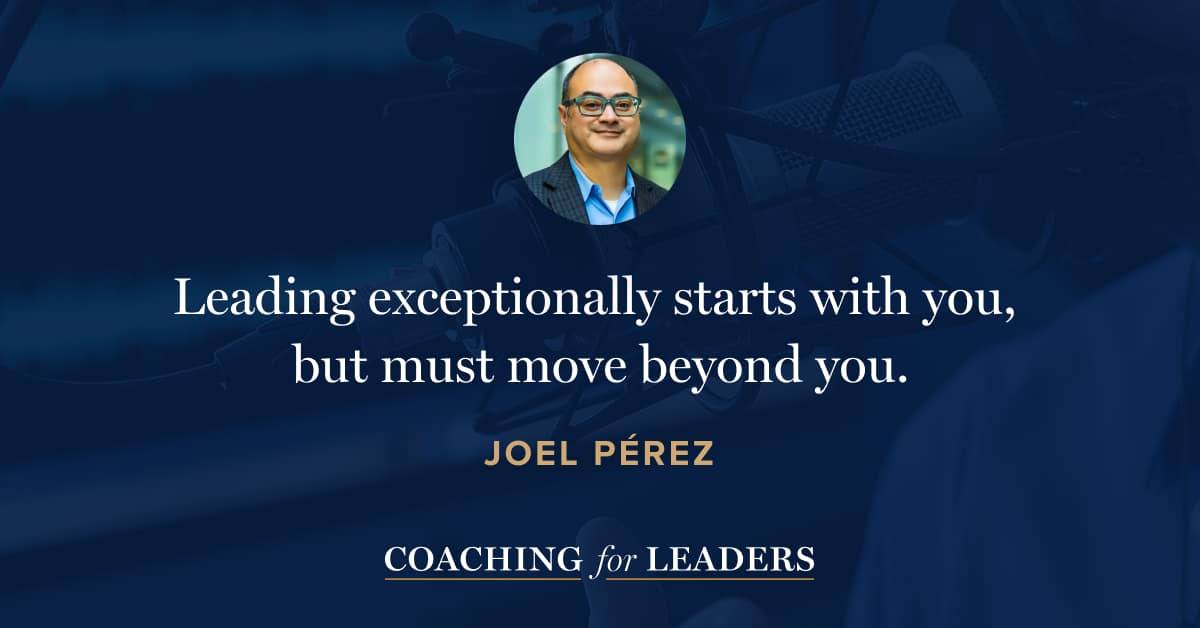Joel Pérez: Dear White Leader
Joel Pérez is an executive and leadership coach, speaker, and consultant who is passionate about helping leaders and organizations achieve their goals and develop a posture of cultural humility. He has over twenty years of experience in higher education, serving in various key leadership roles. He is the author of Dear White Leader: How to Achieve Organizational Excellence through Cultural Humility*.
We could all get a bit better at bringing a dose of humility into our work. Inside organizations, cultural humility starts with how leaders show up each day. In this episode, Joel and I examine three shifts that will help us better empower others.
Key Points
- While humility starts with an individual, it must move beyond them to improve the organization.
- Maintain high standards while avoiding perfectionism by discussing how mistakes get handled in advance.
- To prevent a sense of urgency from rushing a bad decision, consider who’s missing from the conversation.
- Listen, ask curious questions, and say thank you when receiving criticism.
- Criticism doesn’t need to be addressed in the moment. Consider reflection, other data points, and responding more in a future interaction.
Resources Mentioned
- Dear White Leader: How to Achieve Organizational Excellence through Cultural Humility* by Joel Pérez
- Dear White Leader website
Interview Notes
Download my interview notes in PDF format (free membership required).
Related Episodes
- The Starting Point for Inclusive Leadership, with Susan MacKenty Brady (episode 584)
- How to Use Power Responsibly, with Vanessa Bohns (episode 551)
- How to Discover What People Want, with Tiziana Casciaro (episode 565)
Discover More
Activate your free membership for full access to the entire library of interviews since 2011, searchable by topic. To accelerate your learning, uncover more inside Coaching for Leaders Plus.





